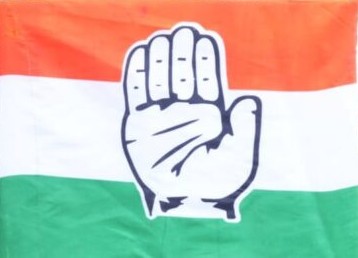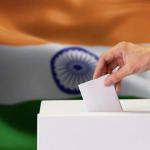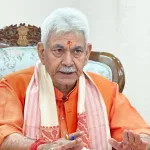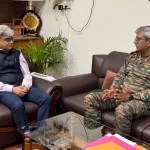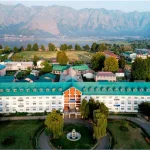The Indian National Congress (INC), despite its legacy as one of the oldest and most influential political parties in India, has struggled to establish a strong and sustainable political base in Jammu and Kashmir (J&K). The party’s historical presence in J&K, marked by the early leadership of GM Sadiq and Mir Qasim, did not translate into long-term political dominance. Instead, Congress has consistently found itself playing a secondary role in alliances with regional parties like the National Conference (NC) and the People’s Democratic Party (PDP). This inability to flourish independently coupled with organizational shortcomings and leadership challenges, has left Congress with a diminished role in J&K politics.
Early Role of Congress: GM Sadiq and Mir Qasim
Congress’s political journey in J&K began in earnest in 1964 when GM Sadiq became the Chief Minister. Before this, J&K’s politics were dominated by the NC under Sheikh Abdullah. GM Sadiq, originally a prominent NC member, joined Congress after Sheikh Abdullah’s arrest in 1953. His tenure (1964–1971) as Chief Minister was marked by reforms aimed at integrating J&K more closely with India, reducing the state’s autonomy under Article 370. His successor, Syed Mir Qasim (1972–1975), continued the policies of integration and alignment with national governance.
However, despite this early foothold, Congress failed to build on this foundation and expand its political influence across the state. The dominance of regional parties like the NC, and later the PDP, relegated Congress to a secondary role in J&K politics.
Congress’s Role in Alliances: Playing Second Fiddle
A significant reason behind Congress’s inability to establish itself as a dominant force in J&K is its consistent role as a junior partner in alliances with the NC and PDP. After the brief period of Congress rule under GM Sadiq and Mir Qasim, the party found itself unable to form a government on its own.
Alliance with the National Conference (NC)
The Congress-NC alliance shaped much of J&K’s political landscape in the late 20th century. Following the Indira-Sheikh Accord in 1975, Congress agreed to support Sheikh Abdullah’s return to power, effectively stepping back from its direct control over the state. This decision marked the beginning of Congress’s subordination to the NC in J&K, a trend that would continue for decades.
The NC, despite facing political challenges, managed to maintain a strong organizational structure and a loyal voter base. Congress, on the other hand, could not match the NC’s grassroots presence, leaving the party to play a supporting role in J&K’s political ecosystem.
Alliance with the People’s Democratic Party (PDP)
In the early 2000s, Congress aligned itself with the PDP, another regional party that rapidly rose to prominence under the leadership of Mufti Mohammad Sayeed. In the 2002 J&K assembly elections, the PDP emerged as a key player, and Congress, despite being an established party, found itself playing a secondary role in the coalition. Even though Congress’s Ghulam Nabi Azad served as Chief Minister from 2005 to 2008 as part of a rotational agreement, the PDP held significant influence over the coalition.
Both alliances reflected Congress’s inability to independently assert itself in J&K politics. While NC and PDP strengthened their positions with clear political agendas and regional identities, Congress became increasingly reliant on these partnerships.
Organizational Weaknesses and Lack of Leadership Development
One of Congress’s major failings in J&K has been its inability to build a robust organizational structure at the grassroots level. Unlike the NC, which established a dedicated cadre and a strong regional identity, Congress has struggled to develop a localized political base. Instead, the party has relied heavily on its central leadership, missing opportunities to build a sustainable, state-level organization.
Additionally, Congress has failed to develop second-level leadership in J&K. The same set of individuals has represented the party in elections for decades, creating voter fatigue and contributing to the party’s declining influence. The lack of fresh leadership, especially among younger voters, has limited Congress’s appeal in a state where regional parties have been more adept at connecting with the electorate.
Failure to Develop Constituencies
Another significant issue for Congress in J&K has been its inability to focus on constituency-level development. Even when Congress had a sizable number of MLAs and MLCs in the state, it failed to capitalize on this presence to develop strong local constituencies. In contrast, the NC and PDP have consistently worked to build grassroots support networks, cultivating loyalty among voters through constituency-level engagement and development.
Congress’s inability to engage meaningfully with voters at the local level has contributed to its declining relevance in J&K politics. This failure has been particularly apparent when compared to the success of regional parties in building strong voter bases in their respective strongholds.
Limited Geographical Reach
Geographically, Congress has struggled to expand beyond certain regions in J&K. Historically; the party has had more success in Jammu and Ladakh, where national political parties have traditionally found greater support. However, even in these regions, Congress has faced stiff competition, particularly from the Bharatiya Janata Party (BJP) in recent years.
In the Kashmir Valley, where regional identity plays a more prominent role, Congress has found it difficult to establish a strong foothold. The NC and PDP have dominated the political landscape in the valley, leaving little room for Congress to expand its presence.
Post-Abrogation of Article 370: Missed Opportunity for Congress
The abrogation of Article 370 in August 2019 marked a significant turning point in J&K’s political landscape. The move, which stripped the state of its special status and bifurcated it into two Union Territories, was a decisive moment in J&K politics. However, Congress’s response to this event was marked by ambiguity. While regional parties like the NC and PDP took clear stances against the abrogation, Congress’s position remained unclear, further alienating voters who were looking for strong, decisive leadership.
The party’s lack of a coherent response to the abrogation reflected its broader organizational weaknesses. While the abrogation temporarily sidelined regional parties, creating a potential opening for Congress, the party failed to seize this opportunity to reestablish itself as a significant political force in the region.
2024 Assembly Elections: Limited Reach and Prospects
As the ongoing 2024 J&K Assembly elections unfold, Congress’s prospects remain limited. The party may secure victories in a maximum of three constituencies, primarily in areas where prominent leaders are contesting. For instance, GA Mir, the All India Congress Committee (AICC) General Secretary, is contesting from Dooru, while JKPCC President Tariq Hameed Karra is contesting from the Central Shalteng seat. Additionally, a newly joined Congress candidate is likely to win a seat. However, all three of these candidates are contesting as part of an alliance, highlighting Congress’s continued reliance on coalitions.
In contrast, in the Jammu region, Congress may secure up to 15 seats, a relatively better performance than in the Kashmir Valley. However, even this is far from a position of dominance, as the BJP remains a formidable contender in Jammu.
The Path Forward: Can Congress Revive Its Fortunes in J&K?
For Congress to revive its fortunes in J&K, it must undertake serious introspection and make substantial changes to its organizational strategy. The party needs to invest in building a strong grassroots presence, something that has been sorely lacking in recent years. This includes developing a dedicated cadre of young leaders who can connect with voters on the ground and work to address local issues.
Furthermore, Congress must adopt a clear political narrative that resonates with the people of J&K. The party’s historical reliance on alliances with regional parties has led to a lack of coherence in its messaging. To regain relevance, Congress must decide whether it wants to position itself as a national alternative to the BJP in J&K or continue to rely on alliances with regional players like the NC and PDP.
Lastly, Congress must broaden its appeal beyond its traditional support bases in Jammu and Ladakh. To do this, the party needs to address the unique concerns of voters in different regions of J&K, from issues of development and unemployment to regional autonomy and identity.
Conclusion
Congress’s failure to establish a strong political base in J&K, despite its early successes under GM Sadiq and Mir Qasim, can be attributed to a combination of historical, organizational, and leadership failures. Its reliance on alliances, lack of grassroots development and failure to develop fresh leadership have all contributed to its decline. As the 2024 Assembly elections show, Congress’s presence in J&K remains limited, and the party’s future in the region depends on its ability to adapt and evolve in an increasingly competitive political environment.
(The author is a Political Analyst and National TV debater. The Views expressed are his own and can be reached on @[email protected])


